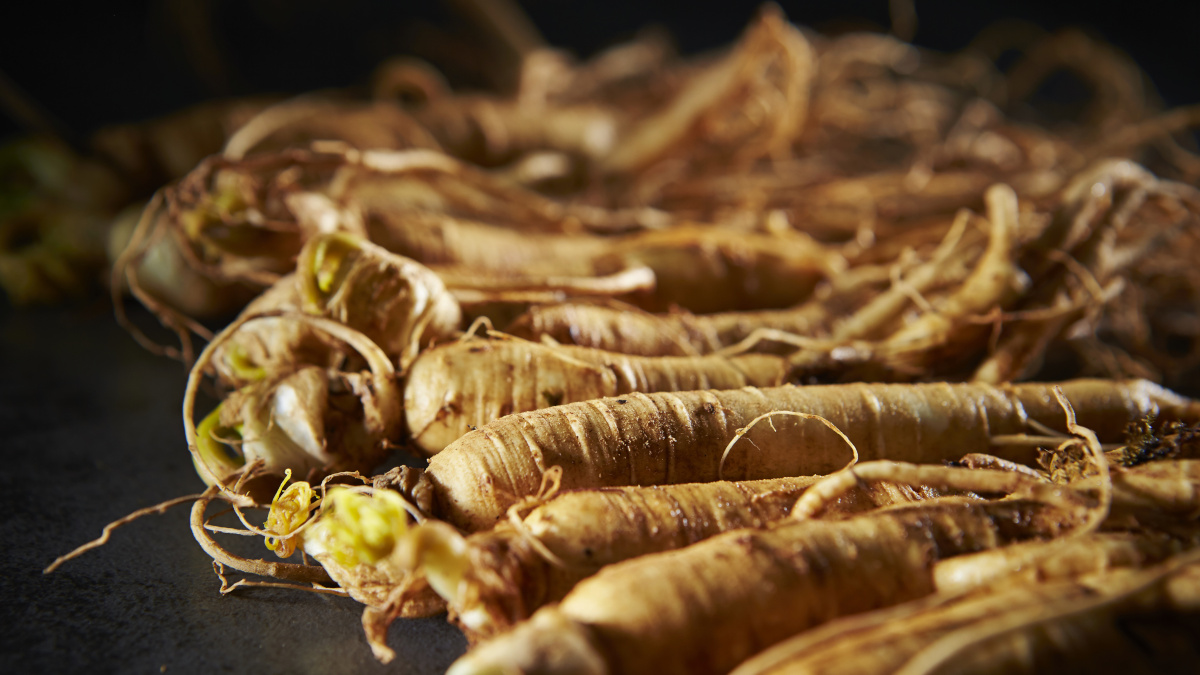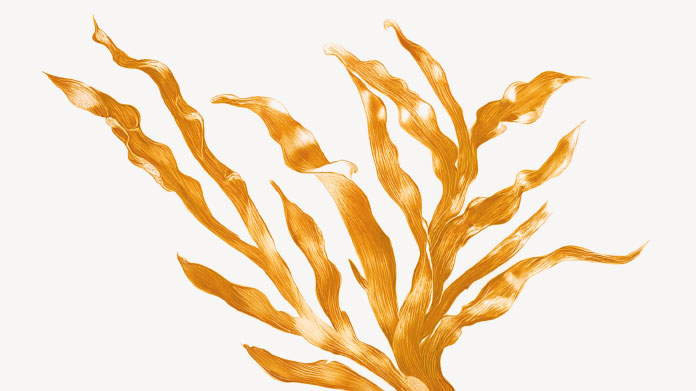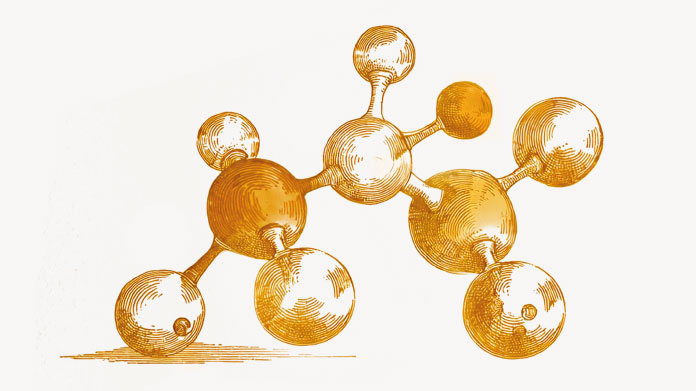Ginseng: the amazing root that helps to support immunity and cognition
We’ve all heard of ginseng, the no. 1 ingredient in the Asian pharmacopoeia. But how is the word pronounced, what are the many health benefits associated with this plant and what accounts for them?

Ginseng, also known as Panax ginseng (or the ‘universal remedy’)
Ginseng is a perennial plant from the Araliaceae family, native to China and Korea. It is usually between 30 and 50 cms in length and is recognisable by its whiteish flowers and small red berries.
Its scientific name is Panax ginseng, Panax meaning “all-healing” in Greek. Ginseng (which means “man-root” in Mandarin) is pronounced with a ‘soft g’ as in ‘jinseng’.
In Korea, it is usually known as insam, meaning “man-shaped root“. After a few years’ growth, ginseng root can indeed come to resemble a human body with two arms and legs ...
The favourite plant of Chinese emperors
An essential ingredient of the Asian pharmacopoeia, ginseng root (or rhizome) has a very long history of use - as much as 4000+ years. Practitioners of Chinese medicine have always considered ginseng to be a Qi tonic (“vital energy»).
Chinese emperors, noblemen and the Imperial guards in particular, benefited from its many medicinal properties. From the 18th century onwards, ginseng root was also available in the West, where it was used as a pick-me-up, aphrodisiac and stimulant.
Ginseng’s benefits for immunity, cognition and vitality
A plant recognised for its multiple benefits, ginseng helps to maintain:
- the immune system (1-2) ;
- good cognitive performance. It plays a role in maintaining normal circulation which is associated with healthy brain reactivity and performance. It thus supports optimal mental and cognitive activity, and in particular, memory (3-4) ;
- normal blood sugar levels, as part of a healthy lifestyle (5) ;
- a healthy sex life (6) ;
- vitality and attention, by combatting fatigue. Ginseng helps to maintain physical and mental capacity in cases of weakness, exhaustion, fatigue and loss of concentration (7-8).
Its exceptional properties have made ginseng root a natural choice for formulation into a dietary supplement. Ideally, opt for a supplement such as Ginseng 30%, known for its high content of active ingredients (30% ginsenosides).
What is responsible for ginseng root’s medicinal properties?
Ginseng’s diverse benefits are the result of its content in:
- ginsenosides, saponosides with a steroid-like structure, also known as ‘panaxosides’. As the main active ingredients in ginseng, ginsenosides may, in particular, help to regulate several ion channels of the central nervous system. Once digested, the molecules generated by ginsenosides may also promote interaction between dendritic cells and T lymphocytes. It’s worth noting that ginseng is the one and only source of ginsenosides (9) ;
- triterpenoids (including protopanaxadiol) ;
- essential oil with monoterpenes ;
- fatty acids ;
- polysaccharides ;
- sterols ;
- vitamins (B, C and E) ;
- and minerals (magnesium, potassium, calcium...)
How to obtain maximum benefit from ginseng
Ginseng is best taken in the morning because of its stimulant effect. You should not exceed 2g (2000mg) a day. We recommend taking ginseng for no longer than 3 months in succession. If you want to extend the supplementation period, take a one-week break every 3 weeks.
If you suffer fromhypertension, heart problems or are taking anticoagulants, please consult your doctor before starting a course of ginseng supplements.
Some synergistic supplements
Other dietary supplements that can be taken in combination with ginseng include:
- zinc, an essential trace-element which supports normal immune system and cognitive function (Zinc Orotate) ;
- reishi, the benefits of which were also enjoyed by Chinese emperors. This “ mushroom of immortality” helps to maintain healthy circulation (opt for the excellent Reishi Extract, standardised to 20% polysaccharides and 6% triterpenes) ;
- and maca, an aphrodisiac plant known as “Peruvian ginseng”. Maca is recognised for helping to stimulate sexual desire (Super Maca).
References
- Wee JJ, Mee Park K, Chung AS. Biological Activities of Ginseng and Its Application to Human Health. In: Benzie IFF, Wachtel-Galor S, editors. Herbal Medicine: Biomolecular and Clinical Aspects. 2nd edition. Boca Raton (FL): CRC Press/Taylor & Francis; 2011. Chapter 8. Available from: https://www.ncbi.nlm.nih.gov/books/NBK92776/
- Kang S, Min H. Ginseng, the 'Immunity Boost': The Effects of Panax ginseng on Immune System. J Ginseng Res. 2012;36(4):354-368. doi:10.5142/jgr.2012.36.4.354
- Kim HJ, Kim P, Shin CY. A comprehensive review of the therapeutic and pharmacological effects of ginseng and ginsenosides in central nervous system. J Ginseng Res. 2013;37(1):8-29. doi:10.5142/jgr.2013.37.8
- Park KC, Jin H, Zheng R, et al. Cognition enhancing effect of panax ginseng in Korean volunteers with mild cognitive impairment: a randomized, double-blind, placebo-controlled clinical trial. Transl Clin Pharmacol. 2019;27(3):92-97. doi:10.12793/tcp.2019.27.3.92
- Chen W, Balan P, Popovich DG. Review of Ginseng Anti-Diabetic Studies. Molecules. 2019;24(24):4501. Published 2019 Dec 9. doi:10.3390/molecules24244501
- Leung KW, Wong AS. Ginseng and male reproductive function. Spermatogenesis. 2013;3(3):e26391. doi:10.4161/spmg.26391
- Wee JJ, Mee Park K, Chung AS. Biological Activities of Ginseng and Its Application to Human Health. In: Benzie IFF, Wachtel-Galor S, editors. Herbal Medicine: Biomolecular and Clinical Aspects. 2nd edition. Boca Raton (FL): CRC Press/Taylor & Francis; 2011. Chapter 8. Available from: https://www.ncbi.nlm.nih.gov/books/NBK92776/
- EFSA Register of Questions - Europa EU
- Kiefer D, Pantuso T. Panax ginseng. Am Fam Physician. 2003 Oct 15;68(8):1539-42. PMID: 14596440.
2 Days
this company and its products are…
this company and its products are perfect: I have been their customer for three years , prices are reasonable for the high quality they offer , the products are of very good quality not just plainly "normal" , delivery is quite fast. we are very satisfied with them.
Gabriel Diacakis
3 Days
TOP service TOP products will buy again…
TOP service TOP products will buy again and again
PINOTTI Giorgio
5 Days
Trustworthy company with tested products
Trustworthy company with tested products
Trusted
9 Days
Efficiency and speed
Efficiency and speed
Cuccie
11 Days
GOOD BRAND IN FOOD COMPLEMENTS
GOOD BRAND IN FOOD COMPLEMENTS - SERIOUS WITH GOOD DOCUMENTS AND DETAILS SCIENTIST. AND SERIOUS HONNEST COMMERZIALISATION. I HAVE TRUST IN THEIR PRODUCTS.
FENOGLIO Guy
12 Days
Very good experience
Very good experience, the products arrived in time, in perfect condition and are good quality. Thank you.
GABI TIRCOCI
18 Days
very good expereince
very good expereince
Jelena Đaković
18 Days
Very good products.
Very good products.
Agnes BENDSAK
20 Days
Just OK
Just OK, ordering from company for many years and being safisfied
Lynn Mae
21 Days
Recomendo
Produtos encomendados são recebidos atempadamente e de acordo com o anunciado! Muito satisfeita!
Carla Sofia
22 Days
Everything is great!
Everything is great!
Jonas
26 Days
The delivery was fast and the product…
The delivery was fast and the product is great
SOMMARIVA Gianni
28 Days
Great service and lots of information
Great service and lots of information
Gabi
31 Days
Service Satisfaction
I’m satisfied with the service; it fulfilled what it set out to do.
Anfhony Abreu
34 Days
Original product and fast delivery
Original product and fast delivery. I haven't started it yet, but will do soon.
Vincenza Catania
of experience
your money back
##montant## purchase




